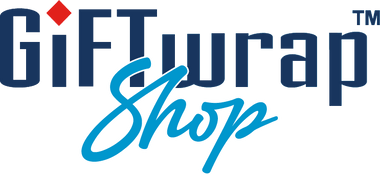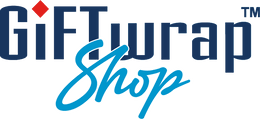Corporate Clothing as a Marketing Tool: How Branded Apparel Boosts Visibility
"Your brand is what other people say about you when you're not in the room." – Jeff Bezos
Corporate clothing has emerged as a formidable marketing tool in today's competitive landscape. From creating a unified image to boosting brand visibility, branded apparel is more than just uniforms; it's a mobile advertisement. This blog post explores the power of corporate clothing as a marketing tool, specifically tailored for small business owners, marketing professionals, and corporate wear suppliers.

Table of Contents
- The Evolution of Corporate Clothing
- Why Corporate Clothing Matters
- Benefits of Branded Corporate Clothing
- Customisation Techniques in Corporate Apparel
- The Role of Quality in Corporate Clothing
- Choosing the Right Corporate Clothing Suppliers
- Cost-Effective Strategies for Small Businesses
- Creating a Product Catalogue That Speaks
- Key Apparel Pieces for Branding
- Expanding Your Brand with Custom Corporate Clothing
- Monitoring the Impact of Branded Apparel
- FAQs on Corporate Clothing as a Marketing Tool
The Evolution of Corporate Clothing
Corporate clothing has come a long way from being just an operational necessity to becoming a vital marketing strategy. In South Africa, the trend of branded corporate clothing is gaining momentum, with companies realising its potential to create a lasting impression.
-
Historical Context: Initially, corporate clothing was used for maintaining uniformity and professionalism. Over the years, it has evolved into a branding tool.
-
Modern Trends: Today, companies invest in unique and custom-branded apparel to stand out in a crowded market.
-
Global Influence: The globalisation of business has led to an increased demand for quality corporate clothing South Africa that reflects international standards.
Why Corporate Clothing Matters
Investing in corporate clothing can significantly impact a company's brand image and visibility. Understanding why it matters is crucial for making informed decisions.
-
Brand Recognition: Branded corporate clothing helps in creating a consistent brand image that customers can easily recognise.
-
Employee Unity: Wearing the same attire fosters a sense of belonging and unity among employees, boosting morale and productivity.
-
Client Perception: Clients often perceive companies with branded attire as more professional and trustworthy, which can enhance business relationships.
Benefits of Branded Corporate Clothing
The advantages of branded corporate clothing extend beyond mere aesthetics; they offer tangible benefits that can elevate a business's market position.
-
Increased Visibility: Employees wearing branded clothing act as walking advertisements, increasing brand exposure in various settings.
-
Cost-Effectiveness: Compared to traditional advertising methods, branded apparel offers a cheaper yet effective marketing solution.
-
Long-term Impact: The impact of branded clothing is long-lasting, with quality designs often becoming iconic representations of a company.
Customisation Techniques in Corporate Apparel
Custom-branded corporate clothing requires expertise in various customisation techniques to ensure the apparel aligns perfectly with brand values.
-
Screen Print and Pad Print: Popular techniques for printing logos on clothing, offering durability and vibrant colours.
-
Sublimation and Full-Colour Print: These techniques allow for complex designs and multiple colours, ideal for unique branding needs.
-
Laser Engraving and Embroidery: For a touch of elegance, these methods add texture and sophistication to corporate attire.
The Role of Quality in Corporate Clothing
Quality should be a top consideration when choosing corporate clothing. It reflects directly on a company's brand image and affects employee comfort.
-
Fabric Choice: High-quality fabrics ensure longevity and comfort, essential for day-to-day wear.
-
Durability: Quality clothing withstands frequent washes and usage, maintaining its appearance over time.
-
Reputation: Investing in quality corporate clothing enhances the perceived value of the brand, contributing to a positive reputation.
Choosing the Right Corporate Clothing Suppliers
Selecting the right corporate clothing suppliers is crucial for achieving the desired outcome from branded apparel strategies.
-
Supplier Reputation: Consider suppliers with a proven track record in delivering quality and timely service.
-
Product Range: A good supplier offers a diverse range of options, from jackets to full corporate outfits.
-
Customisation Capabilities: Ensure the supplier can handle customisation needs, including cheap bulk orders and personalised designs.
Cost-Effective Strategies for Small Businesses
Small businesses can leverage corporate clothing without straining their budgets by employing strategic approaches.
-
Bulk Orders: Ordering in bulk often comes with discounts, making it a cost-effective option for small businesses.
-
Local Suppliers: Engage local corporate clothing suppliers to reduce shipping costs and support local economies.
-
Simple Designs: Opt for simple yet impactful designs that require less customisation, lowering overall costs.
Creating a Product Catalogue That Speaks
A well-curated product catalogue is essential for showcasing the range and quality of corporate clothing offerings.
-
Visual Appeal: Use high-quality images and engaging descriptions to attract potential clients.
-
User-Friendly Layout: Ensure the catalogue is easy to navigate, with clear sections for different apparel types.
-
Highlight Features: Include detailed information on customisation options, quality standards, and pricing.
Key Apparel Pieces for Branding
Certain apparel pieces are more effective for branding, offering versatility and visibility.
-
Jackets and Outerwear: Perfect for screen print or embroidery, they provide a large surface area for branding.
-
Shirts and Tops: Ideal for everyday wear, they keep the brand visible at all times.
-
Accessories: Items like caps and bags offer additional branding opportunities and utility.
Expanding Your Brand with Custom Corporate Clothing
Utilising custom corporate clothing and promotional items can significantly enhance brand recognition and appeal to potential customers. Here are key considerations when integrating these elements into your marketing strategy:
-
Corporate Uniforms: Implementing a cohesive set of corporate uniforms fosters a professional image and ensures employees represent the brand consistently.
-
T-Shirts as Promotional Items: Custom t-shirts serve as versatile promotional items, allowing for easy distribution at events or as giveaways, effectively creating a walking advertisement for your brand.
-
Heat Press Techniques: The heat press method provides a durable option for customisation, ensuring that logos and designs remain vibrant and intact even after multiple washes.
-
Appealing to Potential Customers: Well-designed corporate wear resonates with potential customers, drawing them to your brand and communicating your values through professional attire.
Monitoring the Impact of Branded Apparel
Tracking the effectiveness of branded corporate clothing efforts is vital to ensure continued success.
-
Feedback Collection: Gather feedback from employees and clients to assess the impact of branded apparel.
-
Visibility Metrics: Analyse how often the brand is seen in public spaces through employee interactions.
-
Sales Correlation: Track any changes in sales or client inquiries following the introduction of branded clothing.
FAQs
Q1. How do I start with corporate clothing for my business?
Begin by identifying your brand's core values and how you want them represented through apparel. Collaborate with reputable corporate clothing suppliers to explore design options and customisation techniques.
Q2. Is corporate clothing a cost-effective marketing strategy?
Yes, corporate clothing is generally more cost effective than traditional advertising methods. It provides continuous brand exposure without recurring costs.
Q3. What are popular customisation techniques?
Some popular customisation techniques include screen printing, embroidery, sublimation, and laser engraving. Each offers unique advantages depending on the desired outcome.
Conclusion
Corporate clothing is more than just a uniform; it's a strategic marketing tool that can significantly enhance brand visibility and credibility. For small business owners, marketing professionals, and corporate wear suppliers, understanding the intricacies of branded apparel is essential. By investing in quality, custom-branded clothing and collaborating with experienced suppliers, businesses can leverage this powerful tool to achieve long-term success.
For those eager to explore further, consider consulting corporate clothing South Africa suppliers to gain deeper insights into crafting your unique brand identity through apparel.

